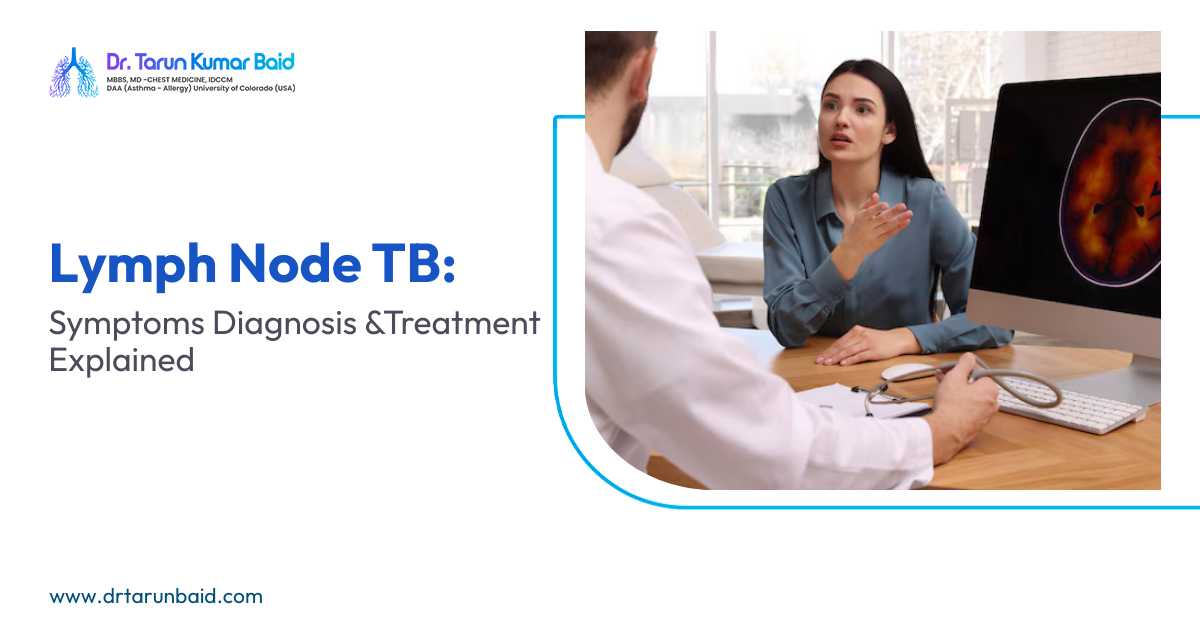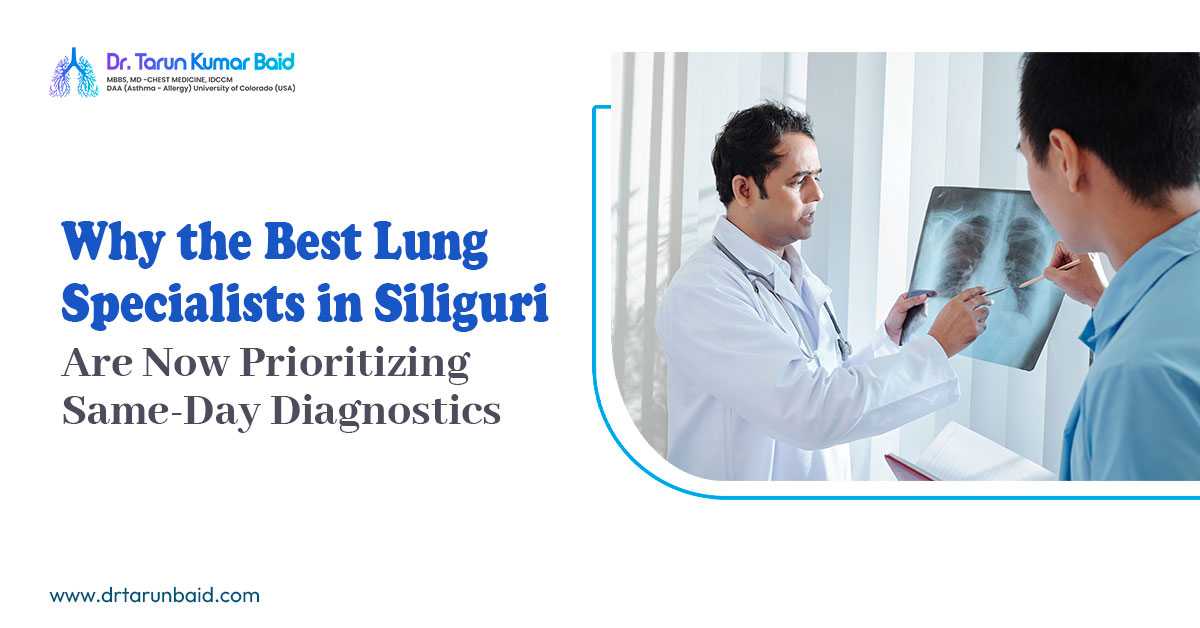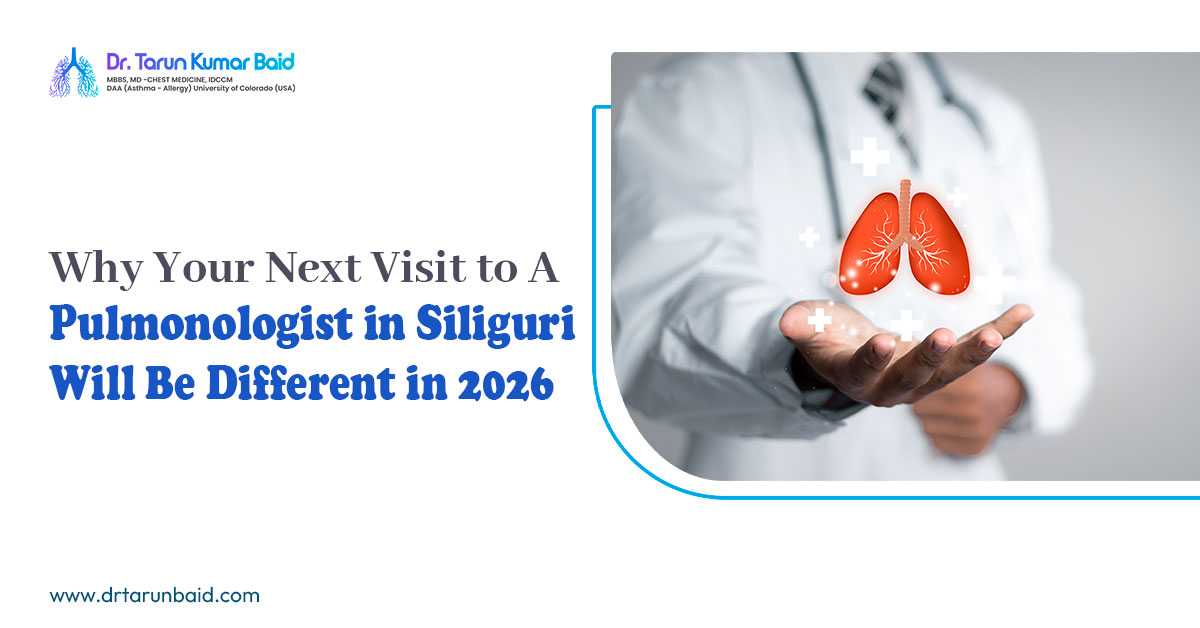Interstitial lung disease (ILD) is responsible for inflammation and scarring in the lungs. Here, shortness of breath and a dry cough are the classic symptoms. This lung condition is a group of over 200 lung diseases that damage the tissues that lie between your lungs' alveoli, which are tiny air sacs, and the blood arteries that surround them. Medical care and timely diagnosis are vital to ILD recovery and management. You might consult the top pulmonologist in Siliguri or near you for optimum lung healthcare.
HowInterstitial Lung Disease Affects People
People have a harder time getting oxygen into theirbodies from their lungs as a result. Progressive scarring in the lung tissue causes stiffness and thickness of the tissue. Therefore, it makes breathing difficult, and shortness of breath is common in people with ILD.
As the damage worsens, patients may have potentially complex side effects such as respiratory failure. It occurs when the body has too much carbon dioxide or not enough oxygen. Plus, it leads to lung infections. Fatigue is very common due to low levels of oxygen in the bloodstream, and breathing becomes difficult due to lung scarring. Another frequent sign is a persistent cough.
It is usuallytough to estimate how quickly the sickness may worsen. Lung scarring is usually irreversible once it starts. Pulmonologists or physicians may prescribe medicines to slow down the progress of ILD or relieve its symptoms. A lung transplant is a treatment option for some ILD patients.
Symptoms Not to Ignore
- Shortness of breath while working out or exercising
- A dry cough that stays or doesn’t heal
- Fatigue
- Discomfort in the chest region
If you notice or feel any of these symptoms, it’s high time you consulted your pulmonologist or general physician for a precise diagnosis and treatment. Having these symptoms doesn’t mean you have ILD for sure.
It requires a clinical diagnosis under expert supervision so that your doctor can confirm the reason for these symptoms. Typically, symptoms of ILD start mildly but worsen over months or years. The exact reason for this lung condition is unexplained. Talk to the best pulmonologist doctor in Siliguri for optimum ILD care.
However, some risk factors are there, such as:
- Smoking
- Older age
- Radiation therapy to the chest
- Working in farming, mining, or construction
- Autoimmune conditions like rheumatoid arthritis (RA), lupus,or scleroderma.
Treatment Options
Your pulmonologist will perform a physical examination, get lung imaging, and test your lung function in order to identify interstitial lung disease. Throughout your examination, they will listen for any odd noises that indicate your lungs aren't functioning properly. Common tests include:
- Pulmonary function test
- High-resolution CT scans
- X-rays
- Bronchoscopy
- Biopsy
- Blood tests
Among treatment choices, your doctor may recommend:
- Corticosteroids to help reduce inflammation.
- Biological drugs to treat autoimmune diseases that lead to ILD
- Oxygen therapy
- Medications to relieve stomach acids
- Pulmonary rehabilitation
- A lung transplant
The role of early diagnosis and detection of the disease is key to the treatment and effective management of ILD. Living with interstitial lung disease requires you to take an active role in your own care and maintain your best potential health. Consulting the top pulmonologist in Siliguri, Dr. Tarun Kumar Baid, can be of great help.
Healthy eating, mild to moderate physical activity, stress relief practices, routine checkups, stopping smoking, quality sleep, etc., are all essential for optimal lung health care. Get medical advice for personalized ILD treatment and lifestyle support.






